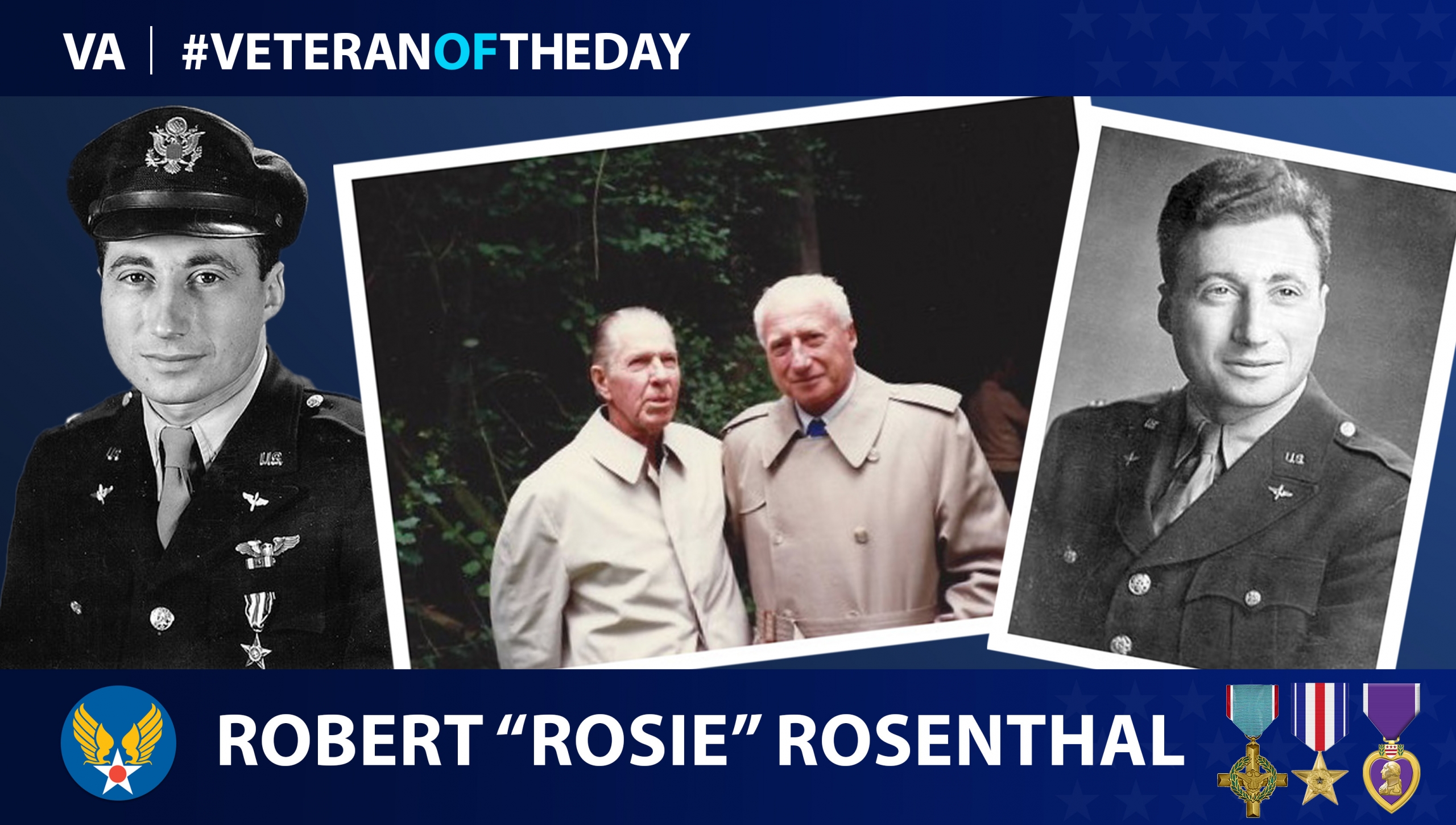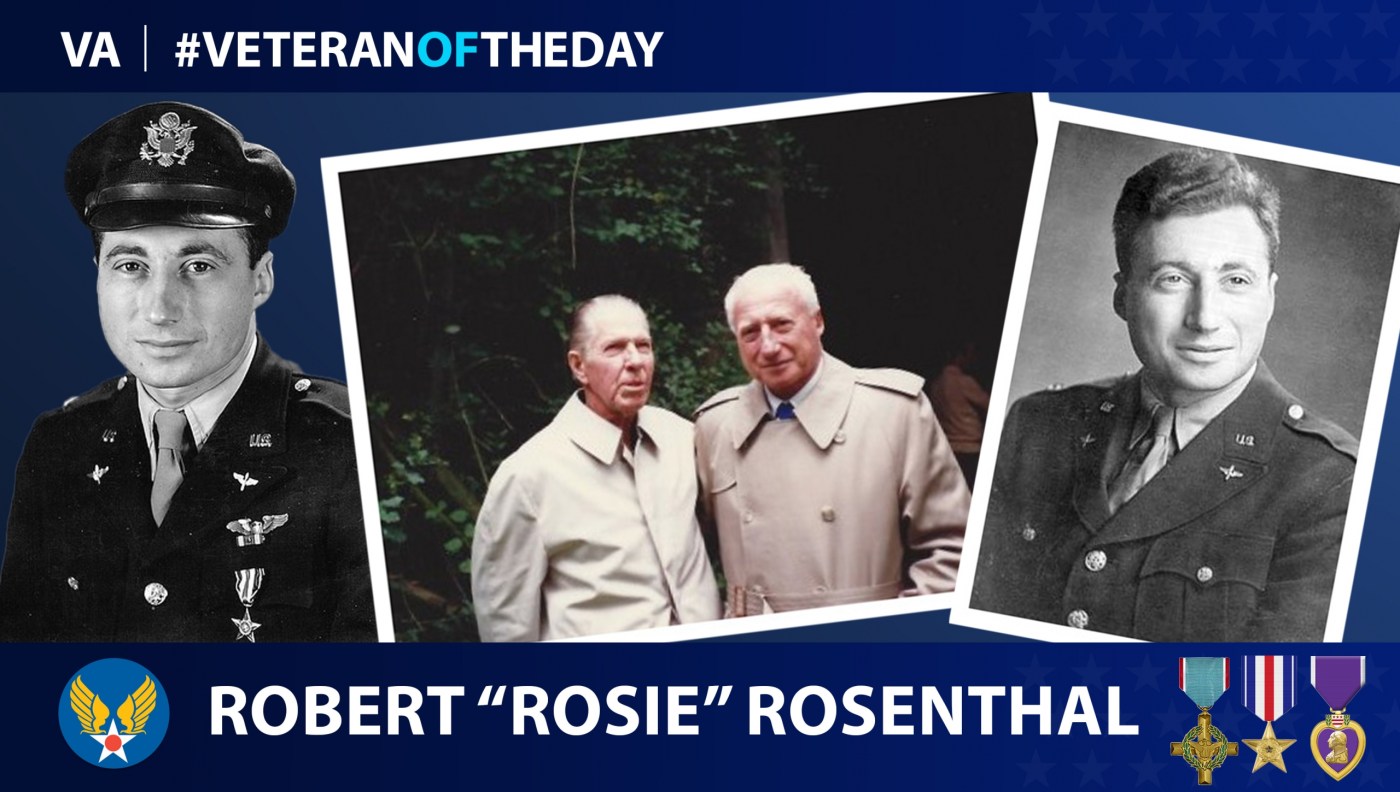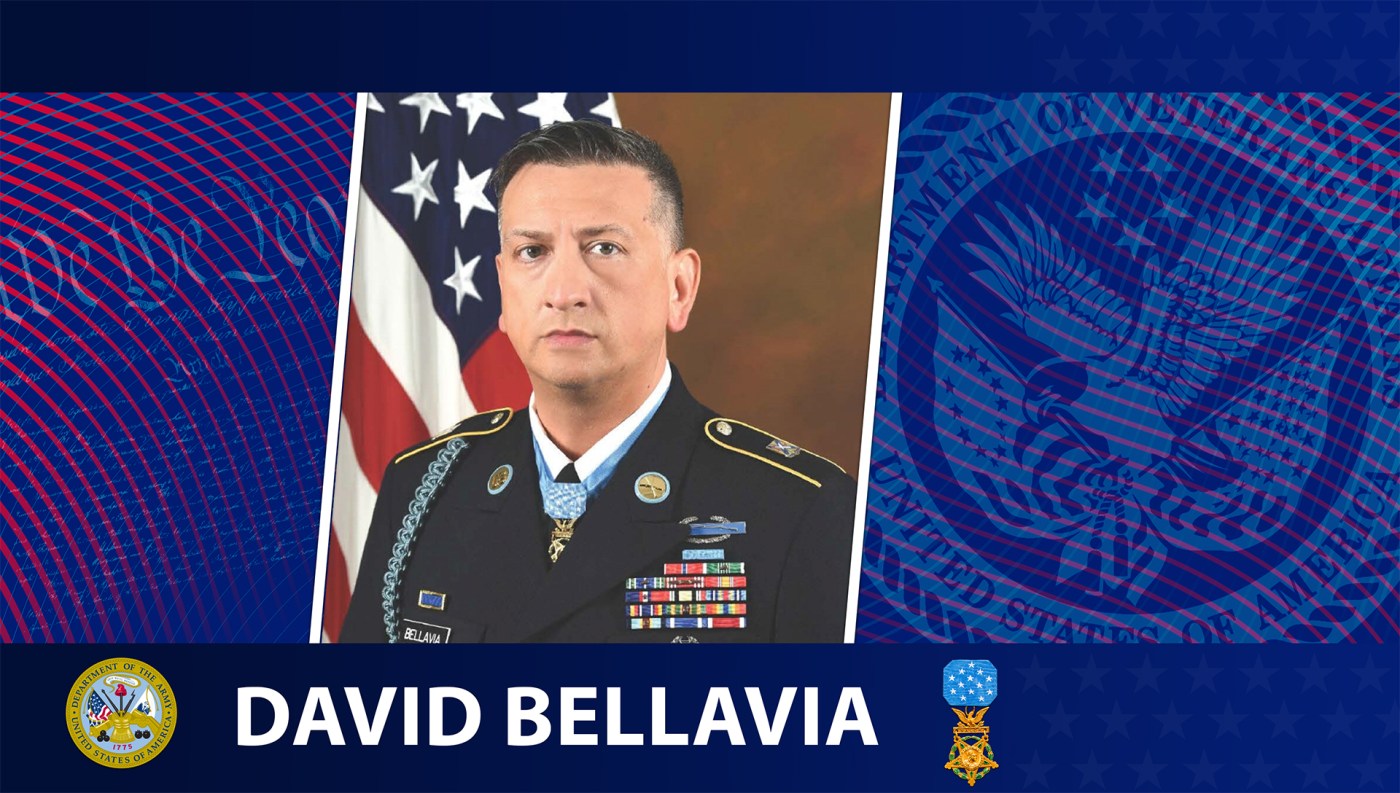
Today’s #VeteranOfTheDay is Army Air Forces Veteran Robert “Rosie” Rosenthal, a highly decorated World War II bomber pilot who received a Distinguished Flying Cross from both the United States and Great Britain.
Robert “Rosie” Rosenthal was born in Brooklyn, New York, in June 1917. Before his enlistment, he graduated from Brooklyn College and was an honor graduate of Brooklyn Law School, after which he started working at one of the largest law firms in Manhattan, New York. Rosenthal enlisted in the U.S. Army Air Forces the day after the Imperial Japanese Navy launched its attack on Pearl Harbor on Dec. 7, 1941. His son, Dan Rosenthal, recalls about the time he asked his dad why he joined the Army Air Forces and became a bomber: “He felt that was the best way of causing the greatest amount of damage to the enemy.”
Rosenthal was commissioned an aviation cadet but eventually worked his way up to lieutenant colonel by March 21, 1945. After completing his pilot training, he joined the 418th Squadron of the 100th Bombardment Group in August 1943, which was stationed at Thorpe Abbotts in England. By March 1944, Rosenthal and his crew, nicknamed “Rosie’s Riveters,” had completed their 25-mission combat tour with their B-17F, but Rosenthal chose to extend his tour, which increased his total missions to 52.
During his extended tour, Rosenthal became a commanding officer of the 350th and 418th Bombardment Squadrons. Throughout his service, Rosenthal faced danger in many missions. One of them was on Feb. 3, 1945, when he was shot down near the Oder River line after successfully dropping his payload during a bombing run on Berlin. His bomber was in flames after a direct hit. Rosenthal stayed inside until his crew was able to bail out, then he parachuted at an altitude around 1,000 feet, suffering from a broken arm and a sprained ankle. Eventually, he was recovered by the Soviet Army and taken to Moscow, then to England. Because of his actions during the mission, Rosenthal received his second Purple Heart. He received his first Purple Heart on Sept. 10, 1944, after crash landing in occupied France and sustaining a broken arm and nose.
Rosenthal received many other awards for his actions, including a Distinguished Service Cross from both the United States and Great Britain, two Silver Stars and a French Croix de Guerre. After the war was over, he was also notably included as an assistant to the U.S. prosecution during the Nuremberg Trials, in which he interrogated high-ranking Nazi Hermann Göring. In 2006, Rosenthal and his bomber crew were inducted into the Jewish-American Hall of Fame.
Rosenthal died on April 20, 2007, at the age of 89.
We honor his service.
Nominate a Veteran for #VeteranOfTheDay
Do you want to light up the face of a special Veteran? Have you been wondering how to tell your Veteran they are special to you? VA’s #VeteranOfTheDay social media feature is an opportunity to highlight your Veteran and his/her service.
It’s easy to nominate a Veteran. Visit our blog post about nominating to learn how to create the best submission.
Veterans History Project
This #VeteranOfTheDay profile was created with interviews submitted to the Veterans History Project. The project collects, preserves, and makes accessible the personal accounts of American war Veterans so that future generations may hear directly from Veterans and better understand the realities of war. Find out more at http://www.loc.gov/vets/.
Writer: Alex Reid
Editors: Alexander Reza, Annabelle Colton
Researchers: Jake Halderson, David Deprez
Graphic artist: Brittany Gorski
Topics in this story
More Stories
This week’s Honoring Veterans Spotlight honors the service of Army Veteran David Bellavia, who received a Medal of Honor from the Iraq War’s deadliest operation, the Second Battle of Fallujah.
This week’s Honoring Veterans Spotlight honors the service of Army Veteran Scotty Hasting, who served in Afghanistan.
This week’s Honoring Veterans Spotlight honors the service of Army Veteran Roy Sheldon, who served in 97th General Hospital in Frankfurt, Germany.







We honor the service of Robert “Rosie” Rosenthal